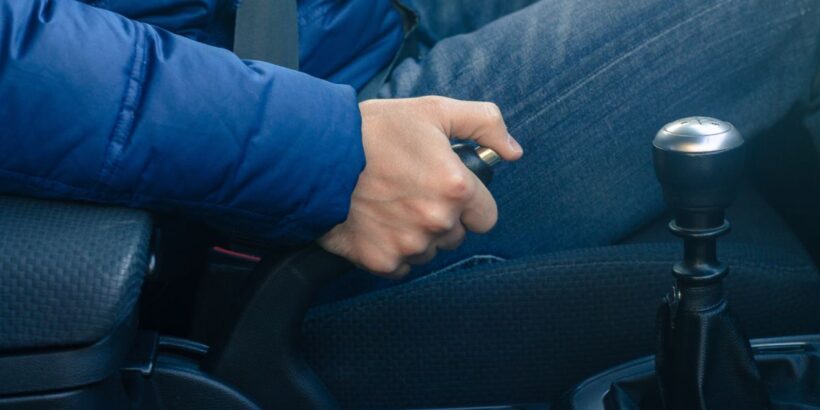Using your car’s parking brake is more than just an optional step when parking on a slope—it’s a critical safety measure that prevents your vehicle from rolling unexpectedly. The dangers of not using your car’s parking brake can range from minor inconveniences to severe accidents or costly mechanical damage. Keep reading to learn about some of the risks of not using your parking brake.
Transmission Damage
Regularly neglecting to use your car’s parking brake can harm the transmission. When you park on an incline and don’t use your vehicle’s parking brake, you put unnecessary stress on the transmission, which can lead to premature wear, costly repairs, or even transmission failure. The parking brake is meant to relieve this pressure by holding the car in place, preventing unnecessary wear. By not using it, you’re asking your transmission to do a job it wasn’t built for, which can lead to damage.
Another issue is that the transmission often bears the load of keeping a parked vehicle stable. While it might seem easier to skip the parking brake, the long-term consequences are serious. Constant pressure on transmission components weakens them, leading to breakage. Replacing a transmission is costly and time-consuming, leaving you without a vehicle. Using the parking brake protects your transmission’s lifespan and functionality.
Risk of Vehicle Rollaway
One of the biggest dangers of not using your car’s parking brake is the risk of a rollaway. When parked on an incline, relying only on the vehicle’s transmission is risky. Without the parking brake, even a slight shift in weight can cause the vehicle to move unexpectedly. A rollaway vehicle poses serious safety risks to pedestrians, other vehicles, and property. Engaging the parking brake ensures your car stays securely parked, minimizing risks.
A rollaway is especially dangerous in crowded areas or busy streets. Even a minor incident can have severe consequences, including injuries. Taking a moment to set the parking brake can prevent such outcomes. It’s a simple yet effective measure that every driver should adopt.
Vehicle rollaways can also cause costly damage to your car and nearby property. Collisions with vehicles, curbs, or structures can lead to expensive repairs and higher insurance premiums. Using the parking brake locks your car in place, eliminating unintentional rollaways. This small action ensures vehicle safety and protects others from potential harm.
Parking Brake Malfunction
Ironically, not using your parking brake can cause it to malfunction when you need it most. Regular use keeps the system in good working order. The cables and mechanisms can seize up when neglected, making them ineffective. Consistent use ensures the parking brake’s responsiveness and reliability.
Neglect also increases the chances of corrosion. Moisture and debris can accumulate in unused components, leading to rust. Over time, the parking brake’s effectiveness diminishes, making it unreliable. Regular use prevents this deterioration, ensuring the parking brake functions optimally.
In conclusion, the benefits of your car’s parking brake extend beyond mere convenience. Regularly engaging the parking brake protects your transmission, prevents vehicle rollaways, and maintains the system’s functionality. Prioritizing this simple action ensures a safer driving experience and prevents costly repairs. Next time you want to skip using it, just remember the dangers of not using your car’s parking brake.

One comment